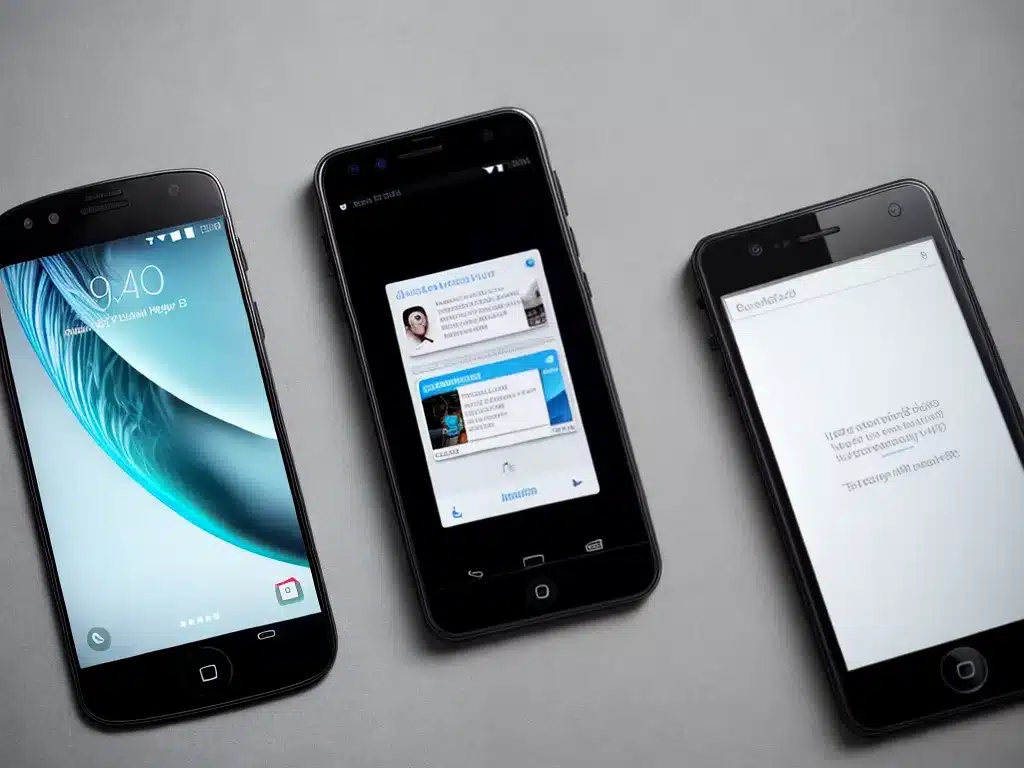

The rivalry between Android and iPhone is iconic. As the two dominant players in the smartphone industry, Android and iPhone have passionate fans who swear allegiance to their chosen platform.
Deciding between Android or iPhone depends on your priorities and which features matter most to you. While both offer great smartphones, there are some key differences to consider.
Customization and Openness
Android offers far more customization options than iPhone. With Android, I can customize my home screens, launchers, icons, fonts, and more. There are also tons of free widgets and themes to download for endless personalization.
iPhones run Apple’s proprietary iOS software with limited ability to customize the interface. Jailbreaking can open up some customization, but it’s a complex process.
Relatedly, Android is much more open than iOS. I can sideload apps from outside the Google Play Store. Downloading files and media is easy with full access to the filesystem.
iOS is closed and restricts access to protect security. But this means no freely downloading files or apps outside the App Store. Jailbreaking again can open options but has risks.
Hardware Variety vs Seamless Ecosystem
The biggest advantage of Android is choice. There are thousands of Android devices at every price point and with varying features. I can choose a top flagship or budget phone that fits my needs.
With iPhone, there are only a handful of current models. But iPhones have seamless ecosystem integration. Everything syncs between iPhone, iPad, Mac, Apple Watch, and more. The experience is very polished.
Android has made progress on ecosystem integration. But device fragmentation means the experience can be inconsistent. iPhones work seamlessly together for a premium user experience.
App Quality and Selection
The iOS App Store tends to get the best apps first. Developers usually launch on iOS before porting apps to Android. iOS apps also tend to be better designed with closer adherence to platform guidelines.
However, the Google Play Store now closes the app quality gap. Top apps are available on both platforms. And Android offers plenty of quality apps of its own not available on iPhone.
The Play Store also has more app selection overall. There are specific niche apps more easily found on Android vs the more curated iOS App Store.
Custom Assistant: Google Assistant vs Siri
Google Assistant on Android and Siri on iPhone are both powerful virtual assistants. Google Assistant is considered smarter and more useful based on independent testing.
Google Assistant excels at searching the web, understanding context, and general knowledge. Siri offers less advanced smarts but has tighter iPhone integration like ability to change system settings.
It’s a matter of preference, but Google Assistant makes Android stand out for its leading conversational AI abilities. Siri is decent but lags behind in areas like natural language processing.
Privacy and Security
Security is a clear iPhone strength. iOS is more locked down and better protects user privacy. Apple states privacy as a core tenet and builds security into the iPhone hardware and software.
Android offers full device encryption but has had more vulnerabilities over the years. Google Play Protect scans apps for malware but Android’s openness leaves it more exposed.
For those deeply concerned about privacy, the iPhone is more secure out of the box. But Android offers robust encryption options and being careful when downloading apps goes a long way.
Price and Value Comparison
In terms of value for money, Android phones are hard to beat. Flagship Androids still cost hundreds less than iPhones for comparable specs and performance. There are also quality budget Android options costing a fraction of an iPhone.
But resale value and long software update support favor iPhone. iPhones typically get 4-5 years of iOS updates. Flagships like Pixel get 3 years of updates but most Androids get 1-2 years. Used iPhones also retain value very well compared to Androids.
So Android offers more bang for buck upfront. But the iPhone holds value better long term and delivers a premium user experience throughout its lifespan.
Conclusion
Ultimately, iPhone or Android comes down to your budget and personal priorities. Key Android strengths are customization, app selection, and value for money. iPhones counter with premium hardware, seamless ecosystem, long updates, and focus on privacy and security.
For my needs, Android is the better choice thanks to endless customization options, Google Assistant, and affordable prices. But your priorities may differ. Analyze your top needs and device usage to decide if Android or iPhone is the right fit.












